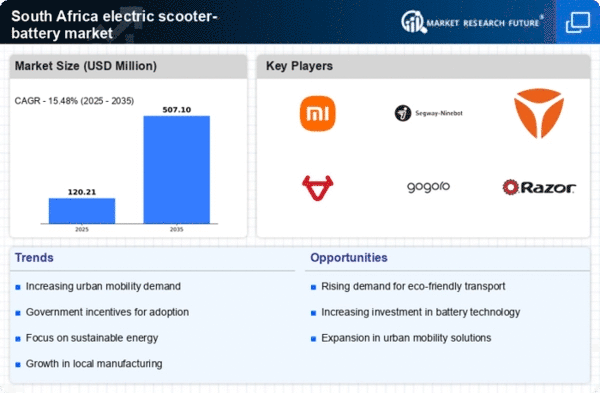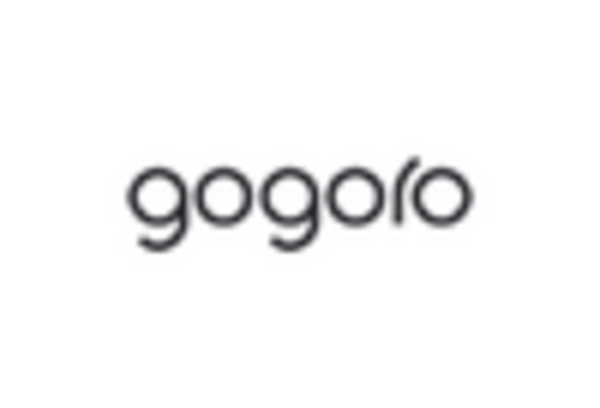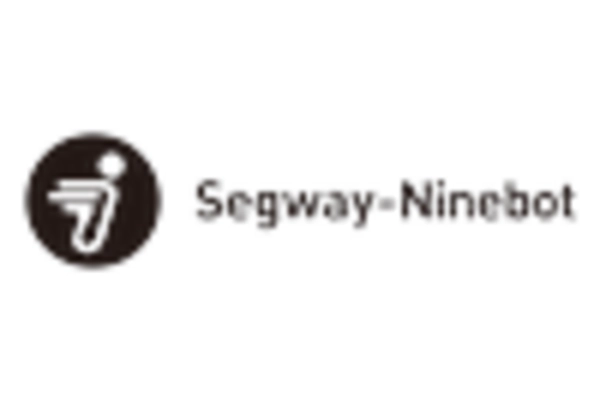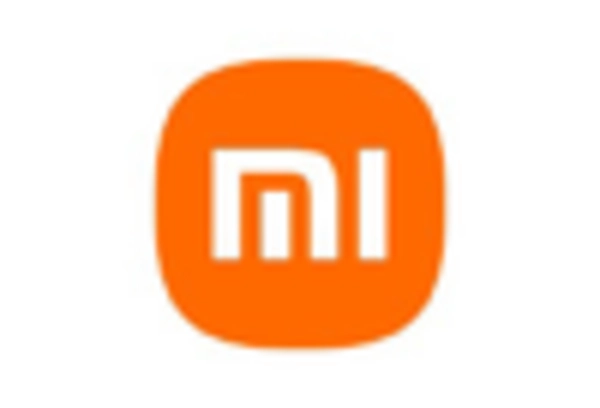Rising Urban Mobility Needs
The electric scooter-battery market is experiencing a surge in demand due to the increasing urban mobility needs in South Africa. As cities expand and populations grow, the necessity for efficient and sustainable transportation options becomes paramount. Urban congestion and the high cost of fuel are driving consumers towards electric scooters as a viable alternative. In 2025, it is estimated that urban areas will account for over 70% of the population, further propelling the demand for electric scooters. This shift in transportation preferences is likely to enhance the electric scooter-battery market, as consumers seek lightweight, portable, and eco-friendly solutions for their daily commutes.
Cost-Effectiveness of Electric Scooters
The electric scooter-battery market is benefiting from the cost-effectiveness associated with electric scooters compared to traditional vehicles. With the rising fuel prices in South Africa, consumers are increasingly recognizing the long-term savings offered by electric scooters. The operational costs of electric scooters are significantly lower, with estimates suggesting that they can save users up to 80% on fuel expenses. Additionally, the maintenance costs are reduced due to fewer moving parts in electric scooters. This financial incentive is likely to attract more consumers to the electric scooter-battery market, as they seek economical alternatives for personal transportation.
Increased Focus on Renewable Energy Sources
The electric scooter-battery market is likely to benefit from the increased focus on renewable energy sources in South Africa. As the country aims to reduce its carbon footprint, there is a growing emphasis on integrating renewable energy into the power grid. This transition is expected to lower the carbon emissions associated with charging electric scooters, making them an even more attractive option for environmentally conscious consumers. By 2025, it is projected that renewable energy will account for over 30% of the energy mix, which could enhance the appeal of electric scooters and subsequently boost the electric scooter-battery market.
Youth Adoption of Electric Mobility Solutions
The electric scooter-battery market is witnessing a notable trend in the youth adoption of electric mobility solutions. Younger generations in South Africa are increasingly inclined towards sustainable and innovative transportation options. This demographic shift is characterized by a preference for electric scooters, which are perceived as trendy and environmentally friendly. As of 2025, surveys indicate that approximately 60% of young adults are considering electric scooters as their primary mode of transport. This growing acceptance among the youth is likely to drive demand in the electric scooter-battery market, as manufacturers respond to the preferences of this influential consumer segment.
Infrastructure Development for Electric Vehicles
The electric scooter-battery market is positively influenced by the ongoing infrastructure development for electric vehicles in South Africa. The government and private sectors are investing in charging stations and maintenance facilities, which are essential for the growth of electric mobility. As of 2025, there are plans to increase the number of charging stations by 50% across major cities, making it more convenient for electric scooter users. This infrastructure enhancement is expected to alleviate range anxiety among potential consumers, thereby stimulating the electric scooter-battery market as more individuals consider adopting electric scooters for their transportation needs.

















